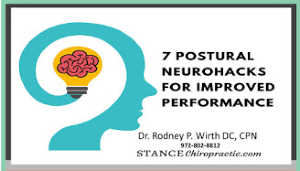The Miracle of Magnesium
Magnesium is one of the most vital minerals and assists in many body functions yet is one of the most deficient in our intake because many foods are depleted of magnesium. This podcast will explore the miracle of magnesium as seen in a book by Carolyn Dean.
Magnesium is necessary to activate the ATP for energy in every cell of our body. It is involved in more than 700 metabolic reactions. It can determine optimal performance of every cell in bone, muscle and organ system. It is important to both physical and mental health. Yet, many foods are depleted of magnesium; many dietary components and drugs interfere with magnesium absorption; many people suffer from deficiency; intake & absorption decrease as we age; and urinary excretion increases with age. An estimated 75% of Americans have daily magnesium intakes less than the RDA (World Health Organization. Calcium and Magnesium in Drinking Water: Public health significance. Geneva: World Health Organization Press; 2009).
Why is magnesium important?
Magnesium is vital to optimal health.
How does magnesium work?
About 60% of the magnesium in your body occurs in bone, while the rest is in muscles, soft tissues, and fluids, including blood. This is important because one of its functions is to help biochemical reactions in the body. It is a helper in more than 600 reactions in your body.
What are the biochemical reactions magnesium activates?
Creating energy
Magnesium helps convert food into energy also known as ATP.
Energy is impossible without ATP, and ATP is useless without magnesium, because the synthesis of the ATP complex is one of the enzymatic reactions requiring magnesium. What many people do not realize is that ATP needs to bind with magnesium to be active. In order for this to happen the ATP charge actually changes so that the ATP’s energy can be accessed. Every one of our 100 trillion cells needs activated ATP to conduct its biochemical processes.
Moving muscles
Magnesium is part of the process of movement in the muscles in the body. It helps the muscles contract and relax. The best example is that heart muscle and it beats consistently. You will get muscle cramps if you don’t have enough magnesium.
Monitoring blood sugar and insulin sensitivity
A proper level of magnesium and prevent type 2 diabetes.
Magnesium has been reported to improve glucose utilization and contribute to the homeostasis of a healthy blood glucose level.
Optimizing the mitochondria
We talked earlier about the role of ATP for energy. Here we want to look at how most health problems can be traced to dysfunction in the mitochondria. To get optimal performance your cells need to have the energy that is produced in the mitochondria (ATP).
Your ability to excel at athletic performance depends on your oxidative capacity – meaning how well your muscle cells consume oxygen which happens within the mitochondria.
Increasing the total number of mitochondria in your cells by engaging in exercise. However, in order for new mitochondria to be created, you must have sufficient amounts of magnesium.
Increasing the efficiency of your mitochondria to repair damage and produce ATP. This process also requires magnesium as a co-factor.
Why might you be lacking magnesium?
A main risk factor for magnesium deficiency is eating a junk food diet. You need to eat organic leafy green to get the magnesium residing at the center of the chlorophyll molecule. Magnesium is also lost through stress, lack of sleep, alcohol consumption, and prescription drug use (especially diuretics, statins, fluoride, and fluoride-containing drugs such as fluoroquinolone antibiotics), and tend to decline in the presence of elevated insulin levels. These are all factors that affect a large majority of people in the Western world, so it’s not so surprising then that anywhere from 50 to 80 percent of Americans are thought to be deficient in magnesium.
What happens when you don’t have enough magnesium?
If you lack in cellular magnesium your metabolic function will suffer and that can snowball into more serious health problems.
When you don’t have enough magnesium you can suffer from:
Early warning signs
- Charlie horses (muscle spasms in legs)
- Loss of appetite
- Fatigue
- Weakness
- Headaches
Serious symptoms
- Fibromyalgia
- Anxiety and depression
- Migraine headaches
- Cardiovascular disease
- Sudden cardiac death
What are high magnesium foods?
Dark-green leafy vegetables:
- Brussels sprouts
- Beet greens
- Broccoli
- Spinach
- Swiss chard
- Turnip greens
- Romaine lettuce
Other yummy sources of magnesium:
- Unsweetened cocoa powder
- Avocados
- Seeds and nuts
- Fatty fish
- Squash
- Herbs and spices
- Fruits and berries
How do I best take supplements since my diet is lacking in what is listed above?
We carry Nutriwest supplements that factor in all the ingredients needed to balance out the absorption of magnesium.
Contact us today.








